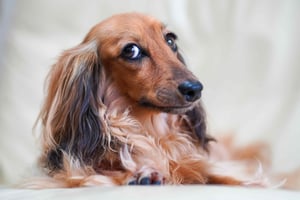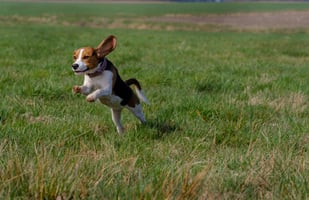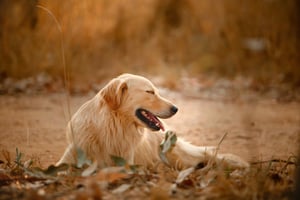Potty training a puppy can be a daunting task for any pet owner. It's even more challenging when it...
2 Month Old Puppy Potty Training - A Comprehensive Guide
Potty training your 2 month old puppy can be a daunting task, but fear not! In this comprehensive guide, we'll explore the most effective methods for potty training your puppy. We'll discuss the best ways to manage your puppy's potty schedule, how to use rewards to encourage good behaviour and the importance of puppy-proofing your home for successful potty training. Read on for all the information you need to potty train your 2 month old puppy!
Understand Your Puppy's Needs
Before you begin potty training your 2 month old puppy, it's important to understand their needs. Puppies at this age have very small bladders and will need to go to the toilet quite often. They also have a limited capacity to hold it in, so it's important to be aware of your puppy's behaviour and take them outside regularly.
To help manage your puppy's toilet habits, you should create a schedule and stick to it. Take your puppy outside at least every two hours and after they wake up, eat, drink or play. This will help them to develop a routine and understand when it's time to go to the toilet.
Create a Potty Area
Creating a designated potty area for your puppy is a great way to help them understand where they should go to the toilet. Choose an area that is easily accessible and free from distractions, such as a quiet corner of the yard or a spot near the door. Once you have chosen an area, take your puppy there every time you let them out and encourage them to go to the toilet. This will help them to associate the area with toileting and make it easier for them to learn.
Use Positive Reinforcement
Using positive reinforcement is one of the most effective methods for potty training your puppy. When your puppy goes to the toilet in the right place, reward them with treats and verbal praise. This will help them to understand that they are doing the right thing and will encourage them to continue going to the toilet in the right place.
It's also important to avoid punishing your puppy if they make a mistake. This can cause them to become anxious and make it harder for them to learn. Instead, if your puppy has an accident, simply take them outside and show them the correct spot. This will help them to understand where they should go to the toilet.
Puppy-Proof Your Home
Puppy-proofing your home is an important part of potty training your 2 month old puppy. Puppies at this age are still learning, so it's important to make sure your home is safe and free from hazards. Close off any rooms that you don't want your puppy to access and make sure all electrical cords and other objects are out of reach. This will help to prevent accidents and keep your puppy safe.
You should also keep an eye on your puppy at all times and watch for any signs that they may need to go to the toilet. If you see your puppy sniffing the floor or circling, these are usually signs that your puppy needs to go outside. Taking them outside quickly will help them to learn the correct behaviour.
Be Patient and Consistent
Potty training a 2 month old puppy can be a long process, so it's important to be patient and consistent. Make sure to reward your puppy for good behaviour and take them outside regularly. With time and patience, your puppy will learn the correct behaviour and be successfully potty trained.
Remember, potty training your 2 month old puppy is a process and it may take some time for them to learn the correct behaviour. With patience and consistency, you can help your puppy to learn and become successfully potty trained.
Conclusion
Potty training your 2 month old puppy can be a daunting task, but it doesn't have to be. By understanding your puppy's needs, creating a potty area, using positive reinforcement and puppy-proofing your home, you can help your puppy to learn the correct behaviour and become successfully potty trained.
Potty training your 2 month old puppy requires patience and consistency, but with the right approach, you can help your puppy to learn and become successfully potty trained.



